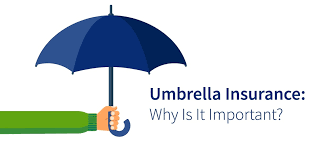Umbrella insurance is a type of personal liability insurance that provides an extra layer of protection beyond the coverage offered by your standard homeowners, auto, or other liability insurance policies. It is designed to protect you and your assets in the event of a catastrophic or high-dollar liability claim that exceeds the limits of your primary insurance policies.
Key points about umbrella insurance:
Additional Coverage: An umbrella policy provides additional liability coverage above and beyond the limits of your primary insurance policies, such as your homeowners insurance and auto insurance.
Broader Coverage: It can also provide coverage for certain types of liability claims that may not be covered by your primary policies. This includes claims like slander, libel, false arrest, and invasion of privacy.
Personal Protection: Umbrella insurance is primarily meant to protect your personal assets, such as your savings, home, and investments, from being used to pay for legal expenses and settlements in the event of a lawsuit.
High Liability Limits: Umbrella policies typically offer high liability limits, often starting at $1 million and going up from there. The exact limit you can choose depends on your insurer and your specific needs.
Affordable Coverage: Umbrella insurance is generally considered cost-effective, especially when you consider the high level of protection it provides. The cost of an umbrella policy is relatively low compared to the potential financial risk it covers.
Coverage for Legal Costs: It can also cover legal defense costs if you're sued, even if the lawsuit is groundless. These legal expenses can quickly add up in a lawsuit, and the umbrella policy can help cover those costs.
Worldwide Coverage: Umbrella insurance typically provides worldwide coverage, which means you're protected even when you travel outside your home country.
To obtain an umbrella insurance policy, you usually need to have an underlying or primary insurance policy, such as homeowners or auto insurance, with minimum liability coverage amounts. Your umbrella policy "floats" on top of these primary policies, providing additional coverage once their limits are exhausted.
Umbrella insurance is particularly valuable for individuals with significant assets or those who have a higher risk of liability claims, but it can be beneficial for anyone looking for extra peace of mind. It's essential to work with an insurance agent to determine the appropriate coverage amount for your specific situation and to understand any policy exclusions or requirements. If you are near either Fort Collins or Windsor visit our office and we can help you find the coverage that you need. Or if that is inconvenient feel free to give us a ring.
